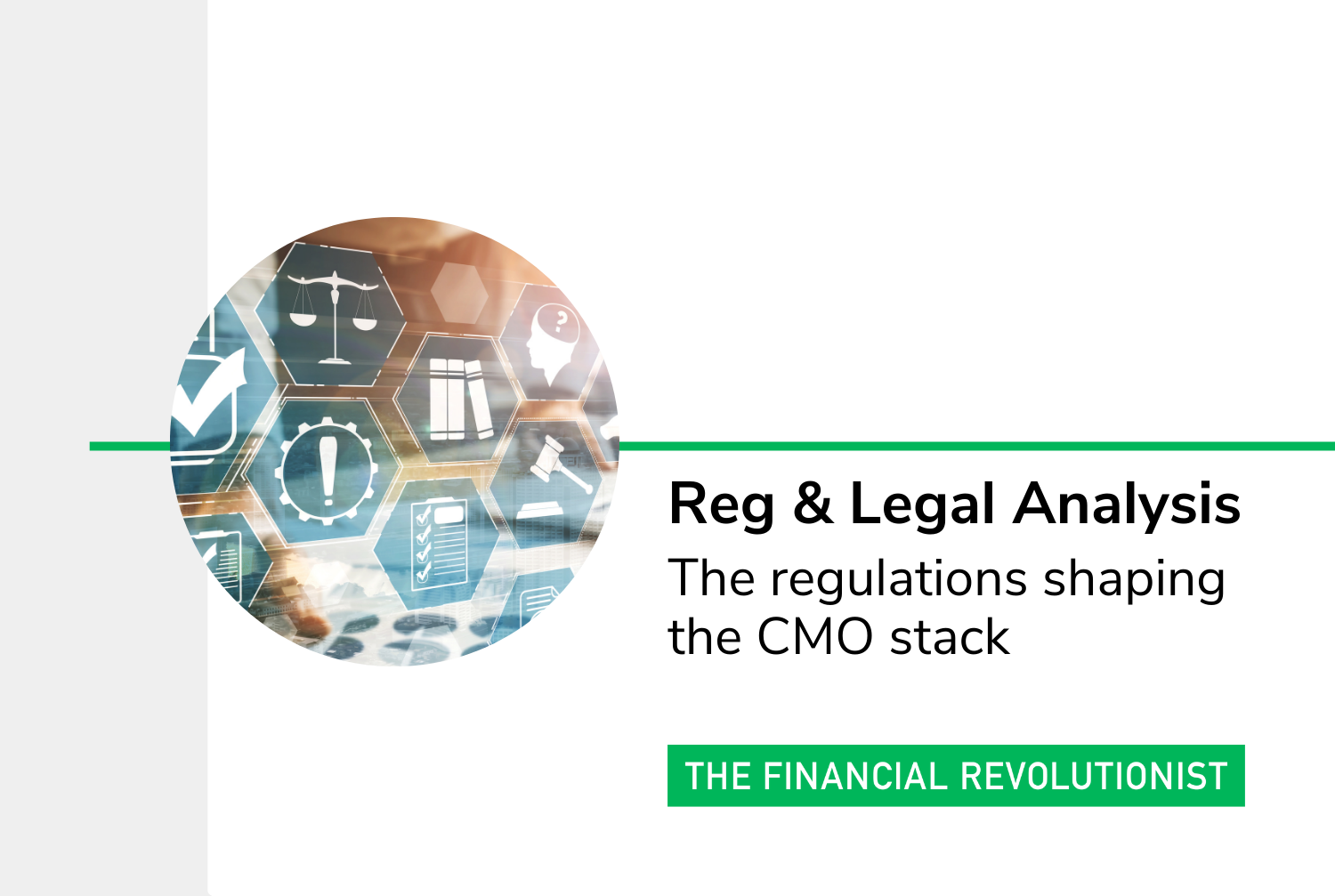The regulations shaping the CMO stack
/CMOs don’t work alone: In lockstep with other leaders—and, crucially, teammates—they strive to expand relevant public awareness about the mission and substance of their companies, while also transforming awareness into engagement and conversion.
But, while CMOs may appear to be among the least affected by regulatory shifts compared to other C-suites and their teams, an intricate web of laws and rulings substantially affect how CMOs work—and determine what kinds of technologies they can deploy.
Data security
Data regulations are at the heart of CMOs’ interactions with the law. Perhaps most importantly, CMOs have grown used to leveraging reams of online data—from website tracking tools to social media analytics—to target and refine audience parameters and insights.
But relatively new frameworks such as the European Union’s GDPR ecosystem have forced CMOs (and the tech providers they rely on) to pivot. Many fintechs targeting CMOs have begun to return to in-person events as a way to find and convert prospects.
Social media regulation
Social media remains a primary marketing channel for B2C and B2B companies alike, though the tools at their disposal have shifted since the Cambridge Analytica scandal, which came to light in 2018.
In response to regulatory changes intending to preserve democratic mechanisms, marketers have had to contend with more constrained advertising capabilities. Rather than deploy hyper-targeted advertising campaigns that can leverage psychological profiles or niche employment and geographic data, marketers have had to cast a wider net, and then refine their pipelines once prospects are at the top of the funnel.
The future of finance
Finally, CMOs of all stripes—not just those in fintech—are affected by the status of nascent currencies and payment technologies. Growth-focused marketers can tap into the excitement surrounding new technologies and trends, and encourage internal product leaders to integrate those tools into their own pipelines. Adding crypto as a payment option, for example, or, more recently, pay-by-bank.
But CMOs also need to know the legal status of up-and-coming financial technologies before recommending their use or co-optation.









